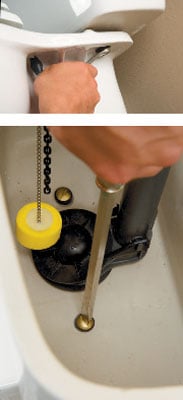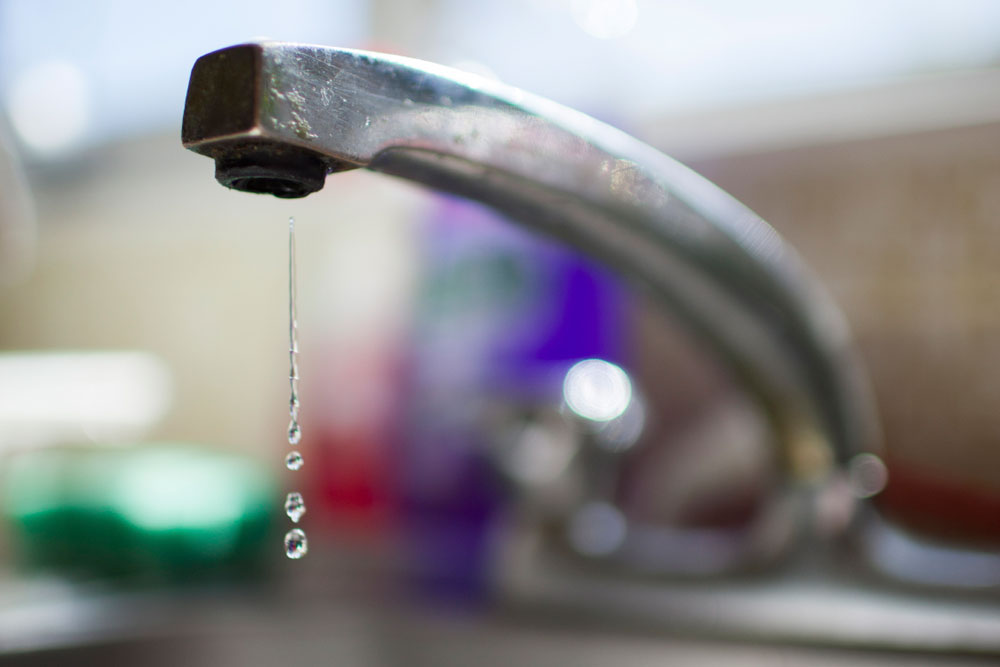5 Recurring Reasons for Water Leaks
5 Recurring Reasons for Water Leaks
Blog Article
We've stumbled upon this post relating to Common Causes of Water Leaks in the Home directly below on the internet and felt it made sense to discuss it with you here.

"Beware of little expenses. A small leak will sink a wonderful ship." - Benjamin Franklin.
He could not have actually been extra appropriate because water leaks in our homes result in a waste of sources, raising our water bills. This rise may seem minimal at first, it can lead to substantial costs that can break your financial institution. Aside from a boost in bills, water leakages also create unwanted organic growth, architectural damages, and also electric risks.
Figuring out if you have a water leakage isn't always simple as a result of being unable to see a lot of the pipework in your home. If you have had an increase in your water bills recently, saw water discolorations on wall surfaces and also ceilings, scented lousy odor, etc. You might intend to take into consideration requesting plumbing solutions to get it checked out.
There are numerous sources of water leakages, as well as we have put together the common reasons listed below. Check to see if you have actually had associated issues in your home just recently.
Damaged pipe joints
Pipeline joints are the components of our plumbing system where the pipes connect. It is crucial to note that also though pipelines are designed to withstand pressure and also last for a while, they weren't created to last for life; consequently, they would wear away over time. A common sign of damaged pipeline joints is too much noise from taps.
High water pressure
You observed your house water pressure is greater than normal but then, why should you care? It's out of your control.
It would certainly be best if you cared because your ordinary water stress must be 60 Psi (per square inch) as well as although your residence's plumbing system is designed to endure 80 Psi. A boost in water stress can put a pressure on your house pipelines as well as bring about fractures, or even worse, ruptured pipes. Obtain in touch with a specialist concerning regulating it if you ever before see that your residence water pressure is greater than common.
Corrosion
As your pipework gets older, it gets weak and much more susceptible to corrosion after the constant flow of water through them, which can eat away at pipes and trigger fractures. A noticeable indicator of deterioration in your house plumbing system is staining and also although this could be tough to detect due to a lot of pipes hidden away. We suggest doing a regular check-up every couple of years and alter pipelines once they are old to make sure an audio plumbing system
Blocked drains pipes
Food particles, dirt, and also grease can trigger clogged drains pipes and also block the passage of water in and out of your sink. If undealt with, raised pressure within the seamless gutters can finish and cause an overflow up splitting or breaking pipelines. To prevent stopped up drains pipes in your home, we recommend you to prevent putting particles down the drain and normal cleansing of sinks.
Damaged seals
One more root cause of water leaks in homes is damaged seals of residence devices that utilize water, e.g., a dishwashing machine. When such appliances are installed, seals are mounted around water adapters for simple passage of water with the device. Thus, a damaged seal can trigger leakage of water when in operation.
With little or no expertise of plumbing, recognizing your home's plumbing system enough to repair a few of these concerns (without consequence) can be a hassle. Contact plumbing professionals in Pittsburgh, Divine Superintendence, Rochester, and environ today, and they'll make those problems go away.
He couldn't have been much more appropriate since water leaks in our homes result in a waste of sources, raising our water expenses. If you have had a boost in your water bills recently, saw water spots on walls and also ceilings, scented lousy smell, etc. An increase in water stress can put a pressure on your house pipelines as well as lead to splits, or worse, ruptured pipes. Another cause of water leakages in homes is damaged seals of residence appliances that utilize water, e.g., a dishwasher. When such home appliances are installed, seals are set up around water adapters for easy passage of water via the machine.
5 TIPS IN DETECTING A WATER LEAK IN YOUR HOUSE
Water leaks can be hard to find in your home, yet they can be so common. We rely on water every day in our home, which is why a leak can cause big problems. By detecting them early, you can save money and further damage, getting the problem fixed as soon as possible. Here are 5 tips to help you detect a water leak in your home, so you can contact a plumber straight away and get the issue sorted.
Check your water meter
Many people underestimate the value of the water meter in their home. It can be one of the best ways to tell if you have a leak early on, so you can get on top of it before issues start arising. Start by turning off all the water in your home: taps, washing machine, dishwasher, etc. Now take a look at the meter – if it’s still changing with everything turned off, it’s likely you have a fast-flowing leak that you need to get on top of straight away. If nothing changes, then leave your meter for an hour or two and come back to it. Did it change in this time? It’s likely you have a slower leak, which isn’t as urgent but still handy to get fixed so it doesn’t become a bigger problem.
Keep an eye on your bill
Another good way to detect a leak in your home is by keeping an eye on your water bill. It helps if you have a past bill from the same period of time. You can compare like for like and determine whether your water usage has increased significantly. If it has, there may be a leak in your system that you haven’t picked up before. A professional plumber can check through all of your pipes and determine where it is coming from.
Look for damage
If you have a leak inside your home, you will notice damage over time. Take a look at your showers and bathtubs and note whether any of the tiles surrounding the area seem to be discoloured or damaged in any way. There may be water stains, mould or peeling material that has resulted from a build up of moisture over time. Make sure you take a look under sinks at the back of cupboards that don’t get accessed regularly. This is where damage can go unnoticed and build up over periods of time.

I discovered that piece on How to Find and Prevent Water Leaks in Your Home while perusing the internet. Please take the time to share this page if you appreciated it. Thank you for going through it.
Detail Report this page